At home with Gary Lineker: Exclusive interview on England, the World Cup, penalties and life after football
Exclusive: At Lineker's London home, the former England man opens up to Jonathan Liew on football and Fifa and everything in between

Your support helps us to tell the story
From reproductive rights to climate change to Big Tech, The Independent is on the ground when the story is developing. Whether it's investigating the financials of Elon Musk's pro-Trump PAC or producing our latest documentary, 'The A Word', which shines a light on the American women fighting for reproductive rights, we know how important it is to parse out the facts from the messaging.
At such a critical moment in US history, we need reporters on the ground. Your donation allows us to keep sending journalists to speak to both sides of the story.
The Independent is trusted by Americans across the entire political spectrum. And unlike many other quality news outlets, we choose not to lock Americans out of our reporting and analysis with paywalls. We believe quality journalism should be available to everyone, paid for by those who can afford it.
Your support makes all the difference.The four-star Forrestmix Hotel just outside St Petersburg, where England’s footballers will be based during this summer’s World Cup 2018, boasts 107 plush rooms, gym facilities, a pool, a VIP spa, three restaurants and a helicopter pad. The players will be able to fill their downtime with myriad forms of entertainment - laptops, tablets, games consoles, box sets - whilst theoretically keeping in touch with the rest of the world via their smartphones.
When Gary Lineker and his England team-mates travelled to Mexico for the 1986 World Cup, they were only allowed to make one phone call a week, which had to be done from the main reception, the location of the only phone in the hotel. The only entertainment inside the rooms was a television with a couple of unintelligible channels on it. And so, the players would make their own fun. Some played cards. Others would set up a pool and have a bet on the football. It was, as Lineker puts it, “a bit like prison”.
But there were certain advantages to their confinement as well. Shielded from the harsh glare of social media by virtue of the fact that it hadn’t been invented yet, Bobby Robson’s England squad were able to exist largely in a bubble, oblivious to the brouhaha their run to the quarter-finals was creating at home.
In a way, Mexico ’86 was the last vestige of a more innocent age. By the time England arrived in Italy four years later, the now-customary travelling circus of fans, hooligans, long-lens cameras, pack journalists and 24-hour scrutiny was already beginning to take ominous shape. Back home, football was already in the early throes of a revolution that would transform it from a sport of ordinary blokes and grimy terraces to one of reclusive billionaires, at-seat USB ports and half-time cheeseboards. The late Bobby Robson now lends his name to an executive suite at St James’s Park, promising “the very finest a la carte dining and premium seating, paying fitting homage to one of football’s most cherished legends”.
And yet, English football’s Year Zero was also its last hurrah. It’s the last time the national team came remotely close to winning the World Cup, leaving an itch that a generation later, we are still waiting to scratch. Meanwhile, Lineker’s feats would propel him into a lucrative retirement, enduring celebrity and a successful second career in broadcasting. And it all began one sweaty night in Turin.
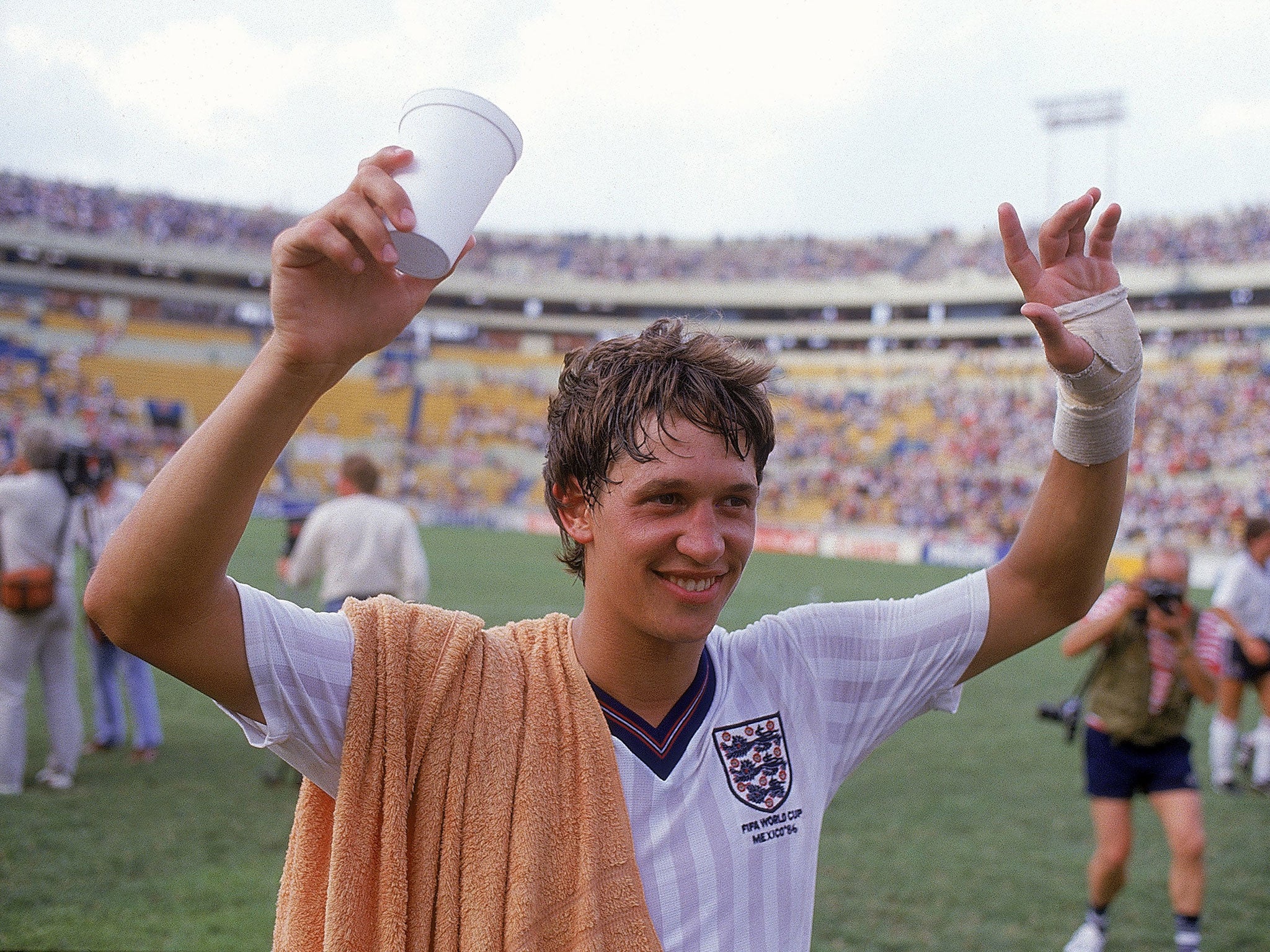
The old joke you made is that football is a simple game: 22 men chase a ball for 90 minutes, and then the Germans win on penalties.
But back in 1990, there was none of that. In fact, it was England’s first ever penalty shoot-out. So what’s going through your mind at that stage?
I mean, obviously there was the Gazza thing in extra time. That distracted us a little bit. And then the conditions, the heat and everything else, are so exhausting that you’re just trying to get to the end of the game. We’d done 120 minutes against Belgium, 120 minutes against Cameroon, then a three-day gap. Even on the morning of the game, I could barely get out of bed. I was so stiff and so tired from the concrete pitch in Naples. But adrenaline is an incredible thing. And then, obviously, towards the end you start thinking it would go to penalties. But I was planning to take one anyway. I used to take 30 to 50 penalties every day, in training.
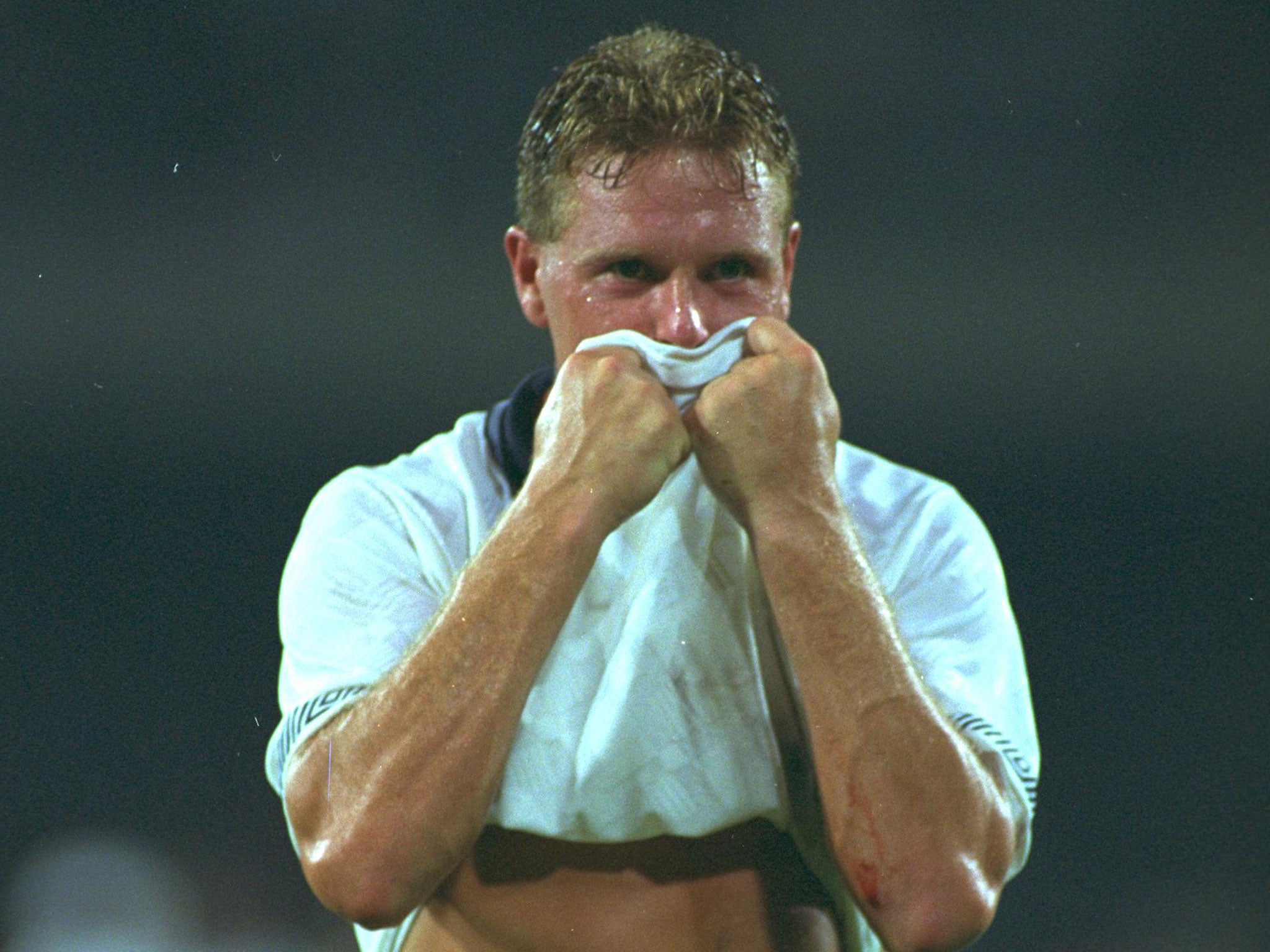
Thirty to fifty? Every day?
During the whole World Cup, yeah. In ’86 and ’90. With no goalkeeper. I didn't want them to affect my confidence. So I’d just go and hit 30 to 50, depending on how I felt. And I’d just keep practising the same penalty, the whole tournament. Keeper's left, so I was basically aiming it just outside the post. When you hit it with the inside of your foot, it just curves naturally. And you always bottle it a little bit.
So you would decide on the sides days in advance?
This is a true story. The day before the Cameroon game, we trained at the ground, and at the end I was about to hit my practice penalties. The day before a game, I didn’t do quite so many: probably 20. So Bobby Robson called me over, and he said: “Gary, you might want to think about your penalty practice. I’ve just been told there’s a Cameroon spy at the ground.” So I just hit 10, and I hit them all low to the keeper's right.
So we get a penalty with eight minutes to go, 2-1 down. Just as I hit it, I could see the keeper going low to his right. Two-all. Then we got another one in extra-time, and I thought: “What the fuck do I do with this one?” But he went so early on the first one, I thought he’s going to go one way or the other, so I'll just whack it down the middle. And that was exactly what I did.
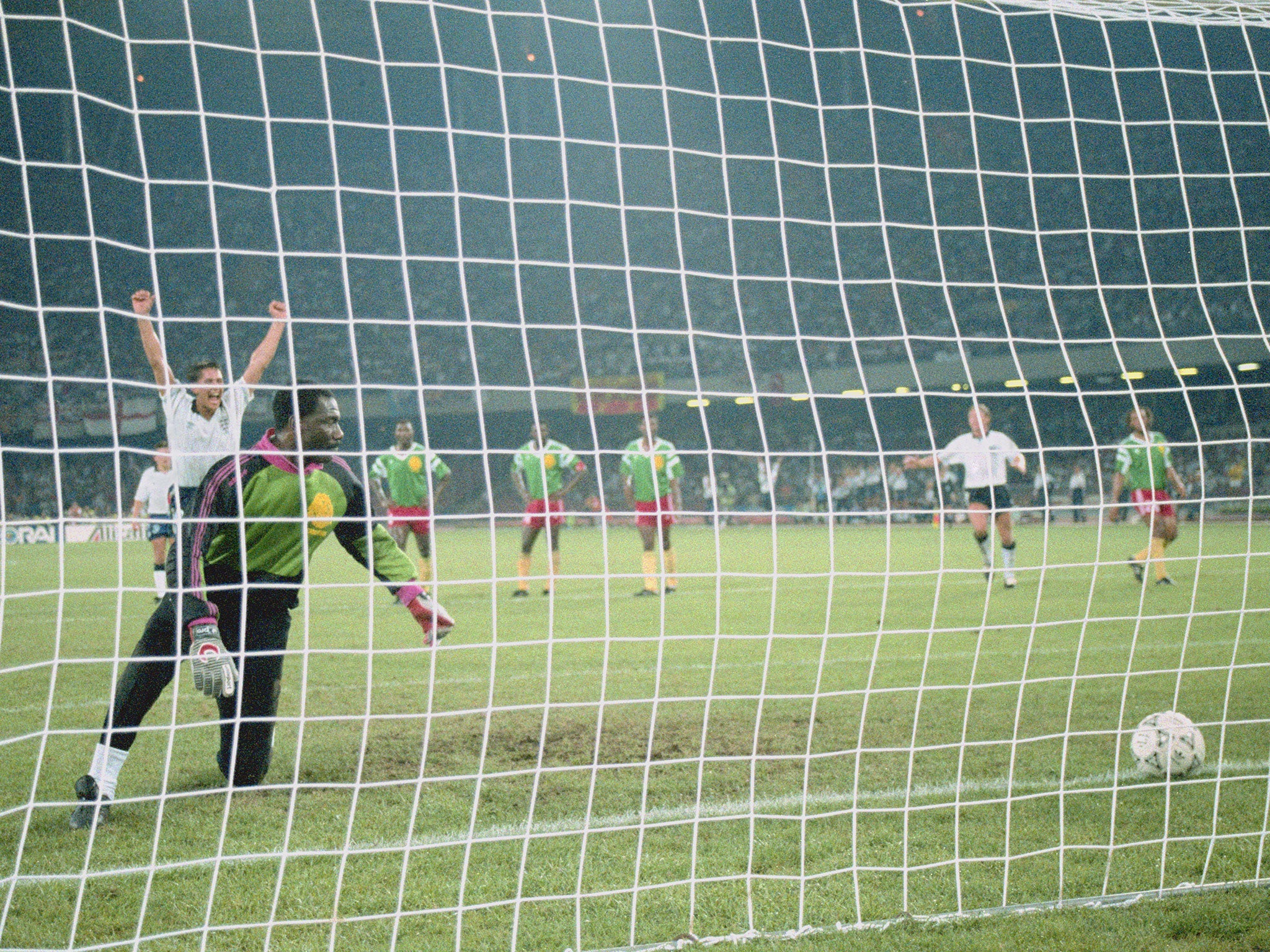
Was anybody else practising like you were?
No. But if I was in charge, they would. I would have them hitting 20, 30 a day at least. Even if they're not taking them. It drives it into you. I hear really sensible football people going, “Yeah, but it's different because you can't replicate the situation.” I just don’t get it. Do golfers never practise a 6ft putt because it’ll be different on tour?
It’s now been 52 years since England won anything. Do you have... a theory at all? Mine is that it’s largely a mental thing?
I don't see why it should be overly mental. It's not a national trait, because we’re excellent in lots of sports. Look at the Olympics. I just think that a) it’s very, very hard to win, and b) our youth development has been shit for 40 years. I mean, it’s only five or six years since we stopped playing little kids on full-sized pitches with big goals, which beggars belief. We never learned like the Spanish players, the South American players do: pass the ball, possession, dribbling skills. It was just hit it long, punt it down the pitch. So I think, looking at the next World Cup, we’ll be really good. We’ve got so many talented kids coming through, playing the game properly.
What do you make of England’s chances this time?
Not great. I don’t think the expectations should be very high. Gareth Southgate’s a sensible guy. I think he could sell it to the nation that this is just one for experience. Play some of the young players. If we got to the quarters, I think that would be a really good achievement.
---
As well as winning the Golden Boot, Mexico ’86 also marked another milestone in Lineker’s career: his first stint as a broadcaster. After England’s exit, he stayed on as a pundit for the BBC’s coverage of the final between Argentina and West Germany. Unable to resist the opportunity to cause a little mischief, host Des Lynam asked Lineker whether there was any truth in the rumour that he was on the verge of a move to Barcelona - whose manager Terry Venables just happened to be sitting two seats away.
Lineker’s response displayed all the impudent discretion we would later come to associate with him as a presenter. “No comprende,” he said, with a wicked glint in his eye. It was the start of a long, winking relationship with the small screen that, more than three decades on, sees him going to Russia as perhaps one of the best-known broadcasters in sport.
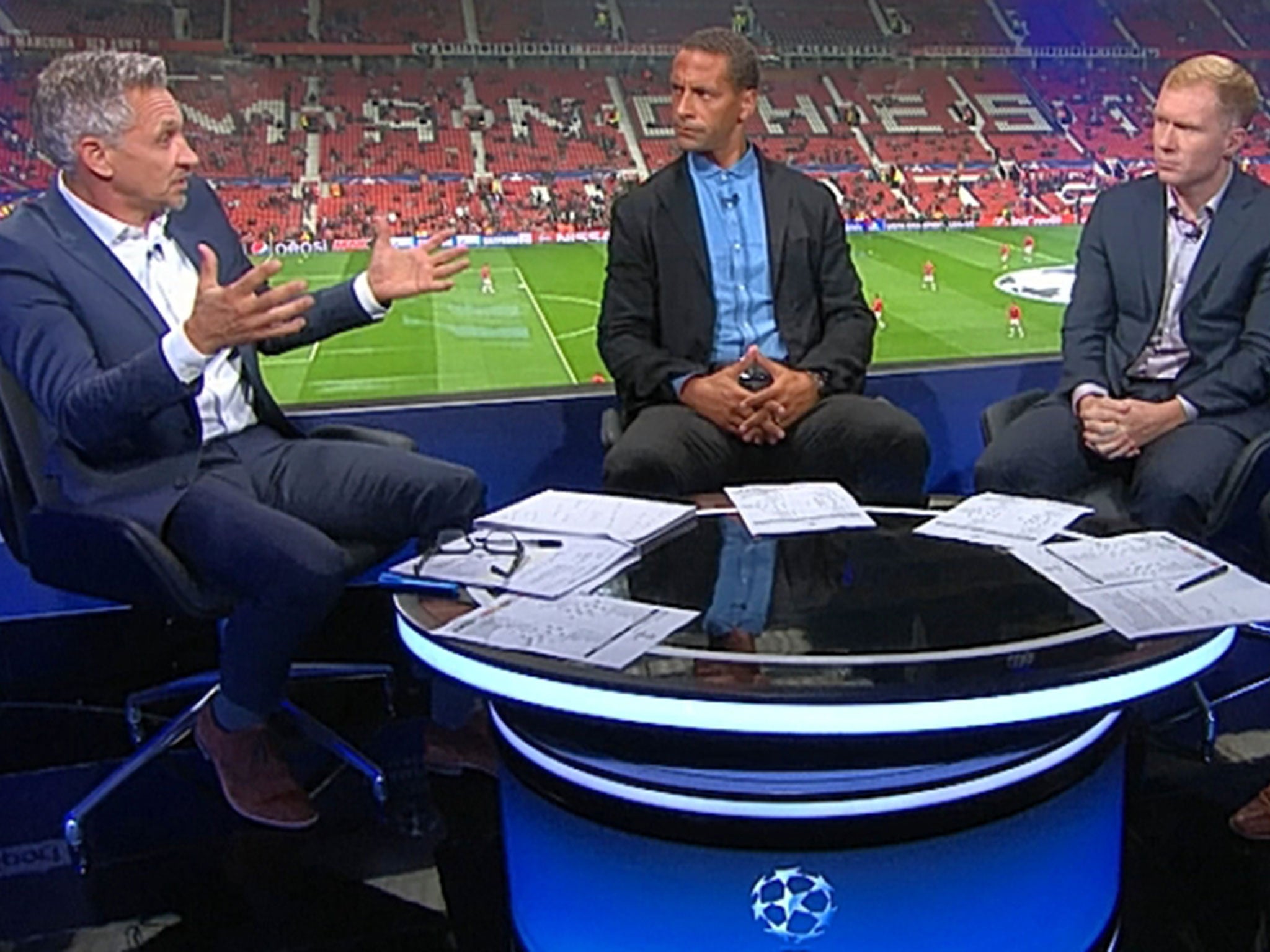
So the likelihood is that at some point, you’re going to be calling England’s elimination
Well, I’ve done it every tournament for quite a long time. People ask what my ambition is, and it’s to say the words, “England have won the World Cup”. Or “England have won the European Championship”.
How do you find the right words for a moment like that? Do you prepare lines?
If I think of something that might work at some point, I write it out and stick it in my notes. Sometimes attempts at humour. Des always told me: “If you think of something you think might be amusing, just do it.” Some people will like it, and some people won’t.
The World Cup draws huge audiences. More than 20 million people watched the last final. Does that play on your mind at all?
It excites me. It’s the same as when I played football. The games I struggled with were always the pre-season friendlies, the matches that didn’t really matter. When I really loved doing it was with the buzz and the adrenaline. I don't get nervous; I’ll never understand that feeling. If you’re thinking about 20 million people watching, it gives you a bit more of a lift.
But there’s huge jeopardy as well?
Oh, you’re one sentence away from disaster on live television. Especially nowadays.
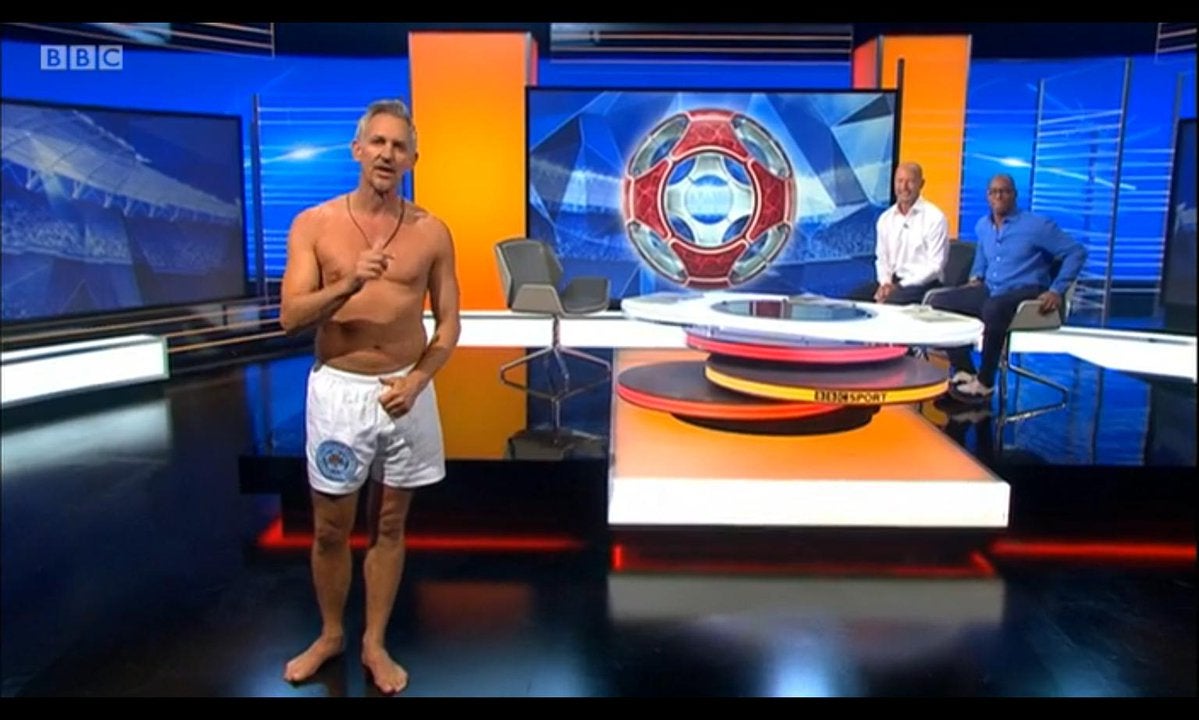
Does that not play on your mind?
It’s not something I think about. I still get it wrong occasionally. I had one nightmare - that could have escalated - when I worked for Al-Jazeera doing the Champions League. We used to do the main match, then the punditry, then we just showed the goals or major incidents from the rest of the games, and I would voice those. But I hadn’t seen them. And it's live.
This one game - about the fourth match in - somebody equalised, and then they cut to a picture of the guy with his face in the grass, and I said: “And to celebrate, he ate grass.” The guys chuckled on the set, they chuckled upstairs, and that was it. Then I get on my phone after the game, and I realise: “Shit. He's Muslim, he was praying.” And I was working for Al-Jazeera.
It went away after a week or two. But that’s probably the only time I was like: “Oh, Christ.”
---
Not all of Lineker’s controversies have been generated by accident. In December, he was fiercely criticised for agreeing to host Fifa’s World Cup draw in Moscow, having been one of the organisation’s most vocal critics over recent years. The age of Sepp Blatter may be in the past. But many observers believe new president Gianni Infantino is little better, with numerous accusations of ethics violations, a reluctance to respond to Russia’s numerous doping scandals, and the refusal to stand up to Qatar over its treatment of migrant workers building the 2022 World Cup.
In the circumstances, Lineker’s decision to do paid work for Fifa - even though he donated his fee to charity - felt, in the words of one newspaper columnist, like “a kind of betrayal”. And yet for all the opprobrium he attracted, he vigorously defends his decision to take the job on.
Did you have any qualms about going to Russia at all?
None at all. I played in two World Cups. I’ve been involved as a broadcaster in every other World Cup since. It’s a competition I love. Being part of the World Cup draw wasn't endorsing Fifa. I was just doing a draw. At the same time, I wanted to get in a little bit. I had lots of meetings prior to it. I spoke to Boban, and he said: “We respect all the criticism, that’s why we want you.” It’s a similar thing, in many ways, to the EU. You either decide whether you want to change things from the inside, or you stand on the outside constantly throwing stones.
I’ve opted for the former. But at the same time, I’m still not endorsing them. I gave my fee for the draw to charity, and I’ve been critical of subsequent decisions that were made. My gut feeling is that they want to change it for the good. It’ll take a long time, because the game has terrible stains from what’s been happening the last 20 or 30 years.
How well do you know Infantino?
Not very well. I spent a bit of time with him after the World Cup draw. I’ve gotten to know Boban [Zvonimir, the former Croatian player and Fifa deputy secretary general] pretty well, who’s got his ear. So I’m fairly confident that Boban would walk if it went back to how it used to be.
You really think so?
I mean, he knows Infantino well. It’s just whether he’s strong enough. And they’ve already got rid of so much of the corruption. They’ll make mistakes, and they’ll make bad decisions, and there will be things that they can’t change. But as long as it’s honest, as long as it’s straight and above board, that’ll do for me. People will make wrong decisions - increasing the World Cup to 48 teams would be a big mistake - but it’s just a decision. Siphoning money off - hundreds of millions that should be going into the grassroots game - is massively wrong, and corrupt, and illegal. Hopefully, even if they make a few mistakes, they’ll sort out the other stuff. If not, I’ll be the first on the case.
When you look at the corruptive influence of big money on the game, the Fifa scandals, the power held by states like Qatar… is football these days is harder to love?
Well, it’s been through the dreadful period of Blatter. Most of them are either locked up, about to be locked up, or suspended. You hope the new bunch aren’t similar. And certainly, I have faith in Boban. There’s an ugly side to the sport, but there's also a beautiful side: the game itself. The top level is as good to watch as anything. There are some beautiful footballers. There are a lot of dodgy dealings, agents ripping the game apart. I think they can change that. Make it a bit more difficult for them. It’s a wealthy sport, but here’s the weird thing. There’s a public perception that footballers shouldn't be wealthy. Whereas it’s all right if it’s golfers, or American footballers.
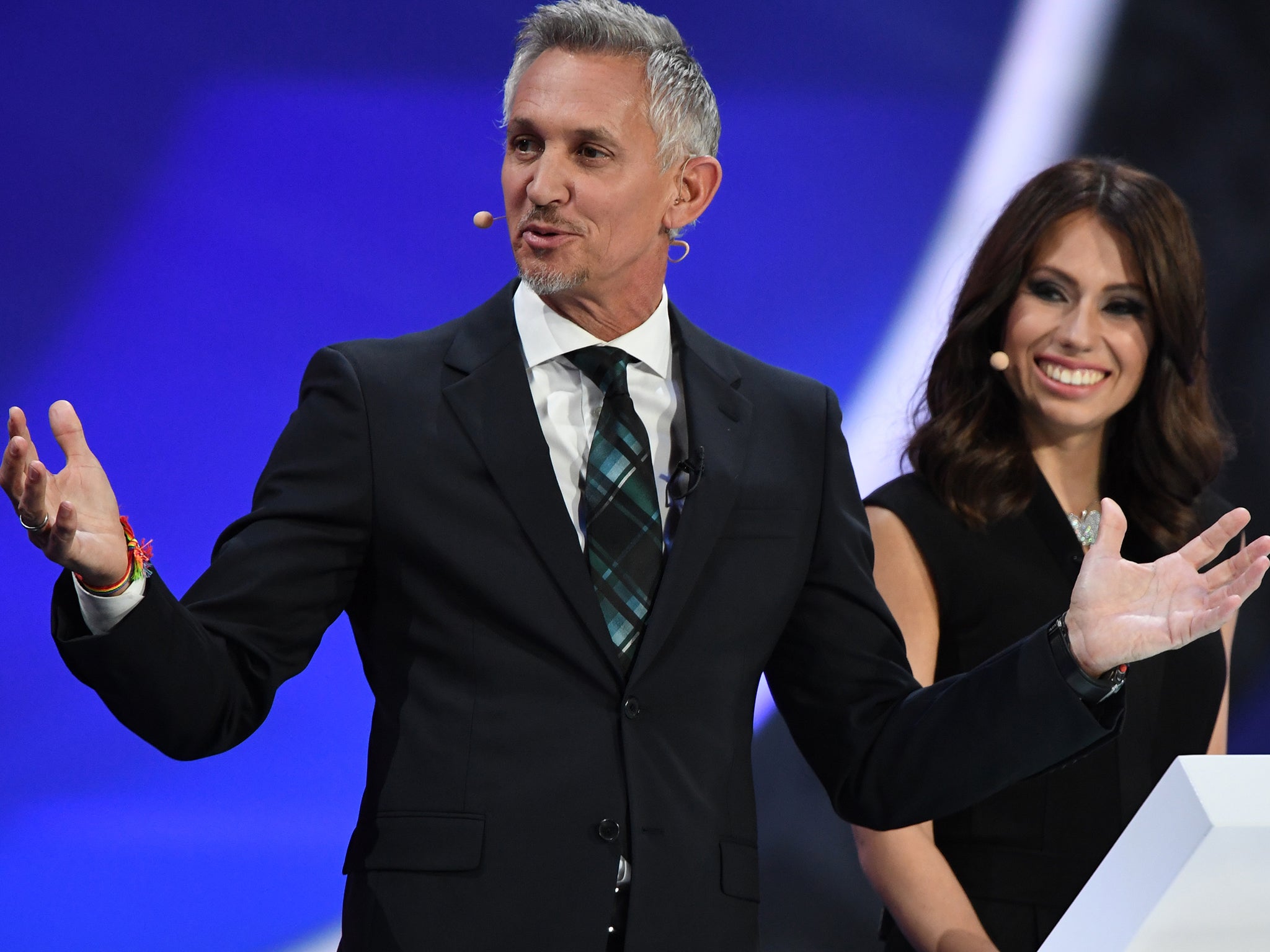
Or even owners?
Businesspeople, actors, superstars. It’s the entertainment business, and there’s big money in entertainment if you’re at the top of your field. But there seems to be a reluctance to accept that for footballers, and I don’t know why that is.
I think people are perfectly fine with someone like Messi being obscenely wealthy. I suppose it’s when you get quite average players earning big money?
I understand that. But football is a team game, and therefore players will be paid well. Now I’m not trying to justify footballers’ salaries, because how could you ever justify it over that of a nurse, or someone who does a proper job? You can’t. But it’s the nature of the entertainment world that if you are quite near the top, then you will do financially very well. The only point I’m trying to make is that you don’t hear that said of people in other sports. It’s just football, and whether that’s because it’s seen as the working man’s game or what, I don’t know. Maybe it’s just the drastic rise in salaries.
A lot of the guys you played with won’t have earned enough not to have to work again?
No, most wouldn’t. There was a period when I was one of the best-paid players in the world, and earning in a year what top players now would earn in a week. Which I’m not bothered about. It just shows you the difference. That’s why so many players have so many problems after football. The divorce rate in the five years after retiring is something like 70 per cent.
You can see why: the fame goes away, the salary goes away. That causes a bit of friction at home. There’s a separation. The wife takes half of what’s left. And all of a sudden, they're in trouble. They turn to drink, or alcohol, or gambling. There’s so many problems that footballers have because there’s so much life left, and they’re not trained to do anything else.
I was lucky. I found something else I could do.
Join our commenting forum
Join thought-provoking conversations, follow other Independent readers and see their replies
Comments